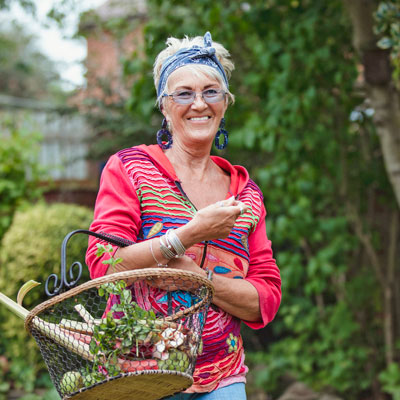Cancer incidence, mortality and survival data from across the devolved nations (England, Wales, Scotland and Northern Ireland) are routinely collected via cancer registries. Globally, UK cancer data is considered among the most accurate and, while this data may be updated throughout the year, new datasets are usually released only once a year.
What do the UK cancer statistics tell us?
Our team at World Cancer Research Fund has collated the latest cancer data available from the devolved nations to give us an overall UK-wide set of cancer statistics. The figures are from 2019 and 2020, and include new incidence and mortality data.
They show that in the UK, 387,820 people were diagnosed with cancer and 166,502 people died from cancer during these years, an increase from 366,303 and 165,267, respectively, from 2017.
Breast, followed by lung, cancer remains most common in the UK. Overall, there were more cancer cases in men than in women.
We’re all getting older
One reason for the increase in cases is that in recent decades we’ve seen an increase in life expectancy. Age is the most important risk factor for cancer so as life expectancy increases, so too will the number of people diagnosed with cancer.
However, in the last few years, life expectancy in the UK and other industrialised nations has declined. In the coming years, it will be important for us to understand the factors that are influencing these declines in life expectancy.
At World Cancer Research Fund we’ll be working across our research and policy areas to understand the data and play our part to improve life expectancy and cancer outcomes.
Prostate cancer on the rise
There’s been a noticeable increase in diagnoses of prostate cancer in the past few years. Comparing 2017 data with 2019 data, we can see that recorded cases of prostate cancer have seen an increase of over 13%.
Why are we seeing this increase and is it because we’re becoming less healthy? Not necessarily – the charity Prostate Cancer UK says it’s likely that more men are getting tested, possibly inspired by celebrities sharing their own prostate cancer journeys: Stephen Fry revealed his prostate cancer diagnosis in 2018 and Bill Turnbull sadly died of the disease this month.
This partially explains why prostate cancer is the 2nd most common cancer in the UK, yet sits slightly lower worldwide in 4th position.
Lung cancer curbed by tobacco control
Lung cancer is still the 3rd most common cancer in the UK and accounted for 20% of cancer deaths. However, the number of cases in the UK decreased between the 2017 and 2019/2020 data – a trend that has been seen since the 1990s. This reflects the declining rates of smoking in the past 10 years brought about by strong tobacco control measures.
The picture in the UK contrasts with the global one – where lung cancer cases rose between 2018 and 2020.
Increase in cancer cases
The fact that nearly all cancer types have seen an increase in cases does, however, strengthen the importance of cancer prevention. We know that around 40% of cancers could be prevented, that’s 155,000 cancer cases a year, if everyone followed our Cancer Prevention Recommendations – including eating healthily, being active, maintaining a healthy weight and not drinking alcohol, as well as avoiding smoking and sun exposure.
Other ways include eating no more than 3 portions of red meat a week and little, if any, processed meat, and new mothers breastfeeding if you can – which is good for mothers and babies.
Let’s take bowel cancer, for example. Our research shows that a poor diet – high in processed meat and low in fibre and vegetables – coupled with obesity, a lack of physical activity and drinking alcohol increases an individual’s risk of developing the disease.
In 2019, cases of bowel cancer rose by nearly 3%, from 2017 data, to close to 45,000 people. What a difference it would make if people started following our Cancer Prevention Recommendations more closely.
- It’s never too late to start living a healthier life; you can today by signing up to our Healthy Habits e-newsletter for tips, recipes and more.


 Rob Mansfield explores the newly collated data from England, Wales, Scotland and Northern Ireland on how many people in the UK develop cancer, die from cancer, and survive cancer
Rob Mansfield explores the newly collated data from England, Wales, Scotland and Northern Ireland on how many people in the UK develop cancer, die from cancer, and survive cancer